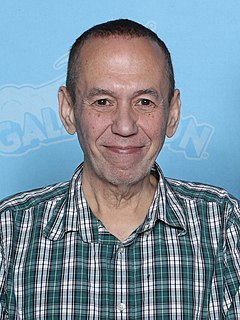A Quote by Edward Said
Speaking as a New Yorker, I found [September 11] a shocking and terrifying event, particularly the scale of it.
Related Quotes
Speaking as a New Yorker, I found it a shocking and terrifying event [9/11], particularly the scale of it. At bottom, it was an implacable desire to do harm to innocent people. It was aimed at symbols: the World Trade Center, the heart of American capitalism, and the Pentagon, the headquarters of the American military establishment.
Another example of what I have to put up with from him. But there was a time I was mad at all my straight friends when AIDS was at its worst. I particularly hated the New Yorker, where Calvin [Trillin] has published so much of his work. The New Yorker was the worst because they barely ever wrote about AIDS. I used to take out on Calvin my real hatred for the New Yorker.
The anniversary of the tragic attacks on September 11, 2001, and September 11, 2012, is a day to remember those who died and suffered. It is also an opportunity to open a new dialogue on the tactics and strategies that have been successful - and unsuccessful - in confronting, containing, and defeating the threat from radical Islam.
On September 11 one of the messages on our answering machine was from The New Yorker saying get down here right away for a special issue we'll be doing. That seemed so irrelevant to me, considering the cataclysm. I went to my studio for a while and I was processing the news. Because when we were in the thick of it, it just felt like Mars Attacks!, Is Paris Burning?, and I had no perspective. For a while, I thought I should go down and look for bodies. At the same time, since The New Yorker was looking for images, I thought, "Well, I'm more trained to look for images than for bodies."
September 11 was, and remains, above all an immense human tragedy. But September 11 also posed a momentous and deliberate challenge not just to America but to the world at large. The target of the terrorists was not only New York and Washington but the very values of freedom, tolerance and decency which underpin our way of life.
It sounds really over the top to say you're responsible for the city of New York, but I do feel responsibility to the city of New York, to this country, to people everywhere. So many people were affected by the events of September 11, and I feel this is one of the ways that that event will be understood and defined.




































